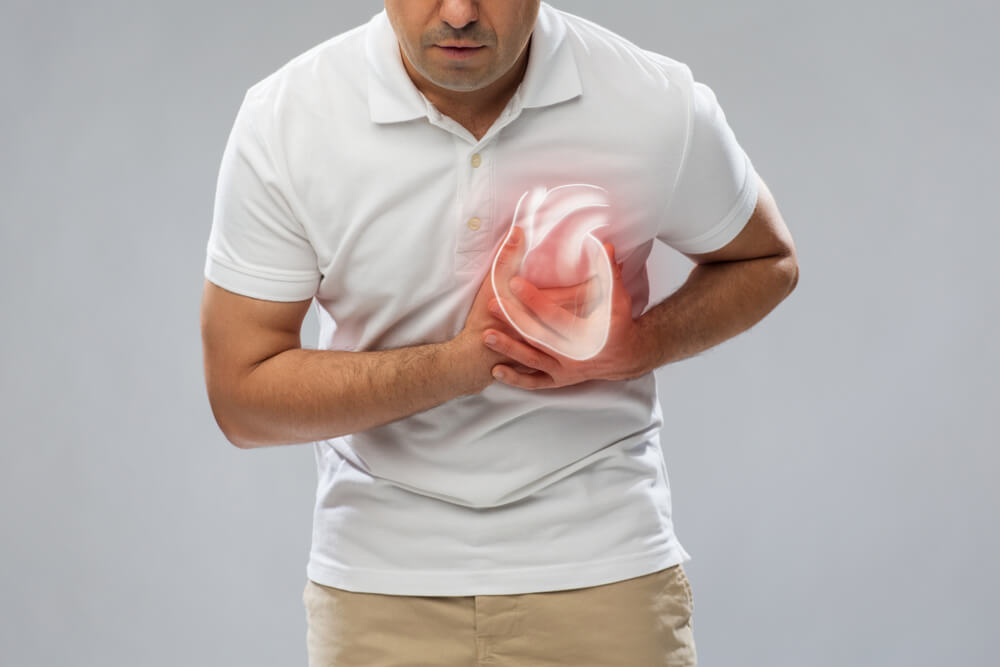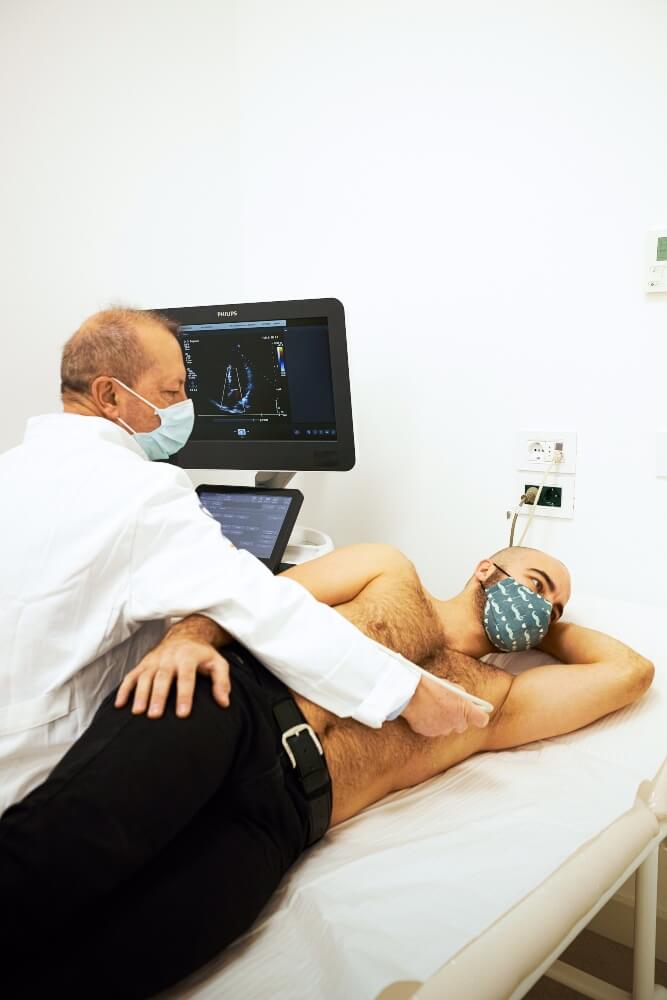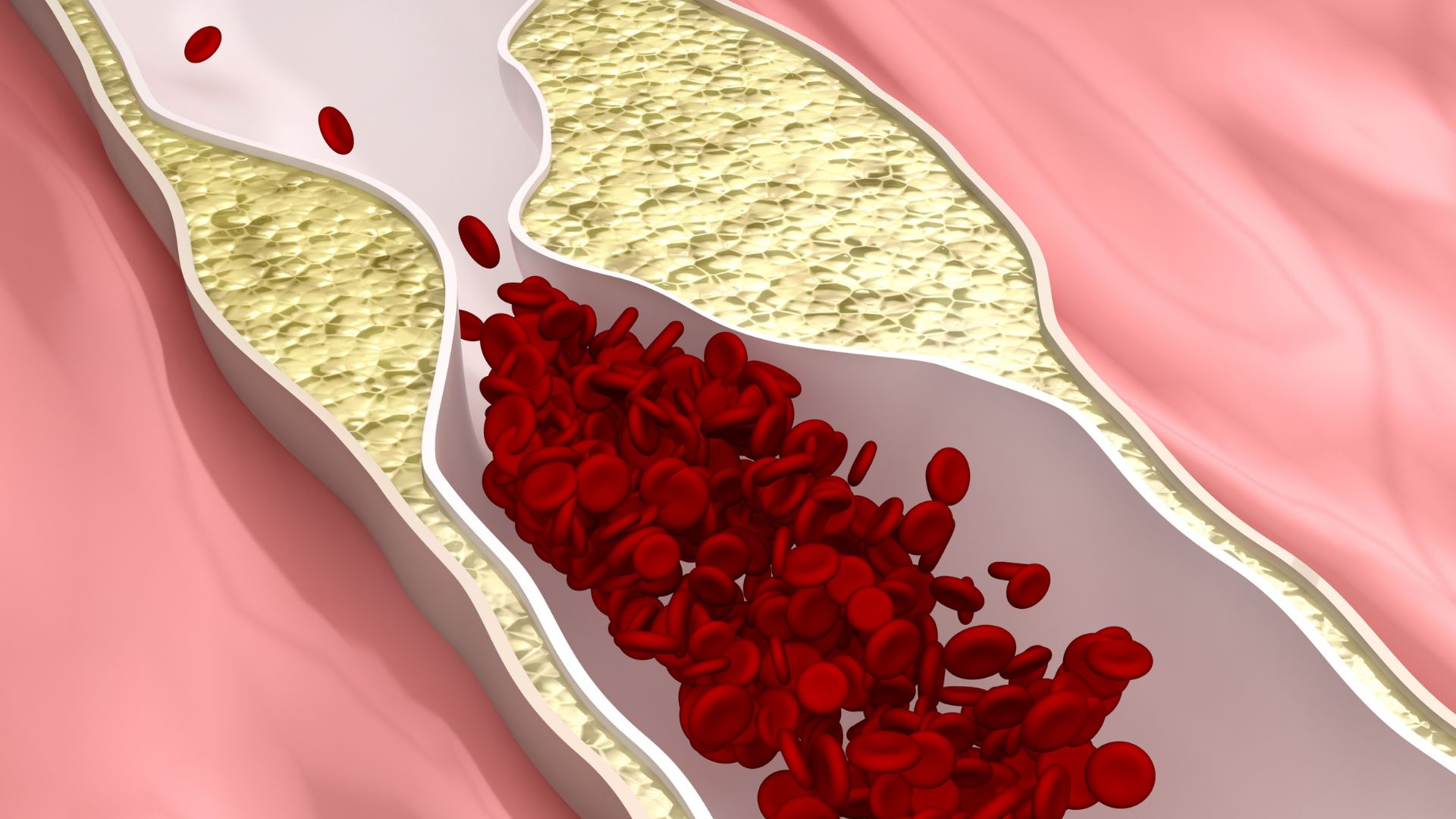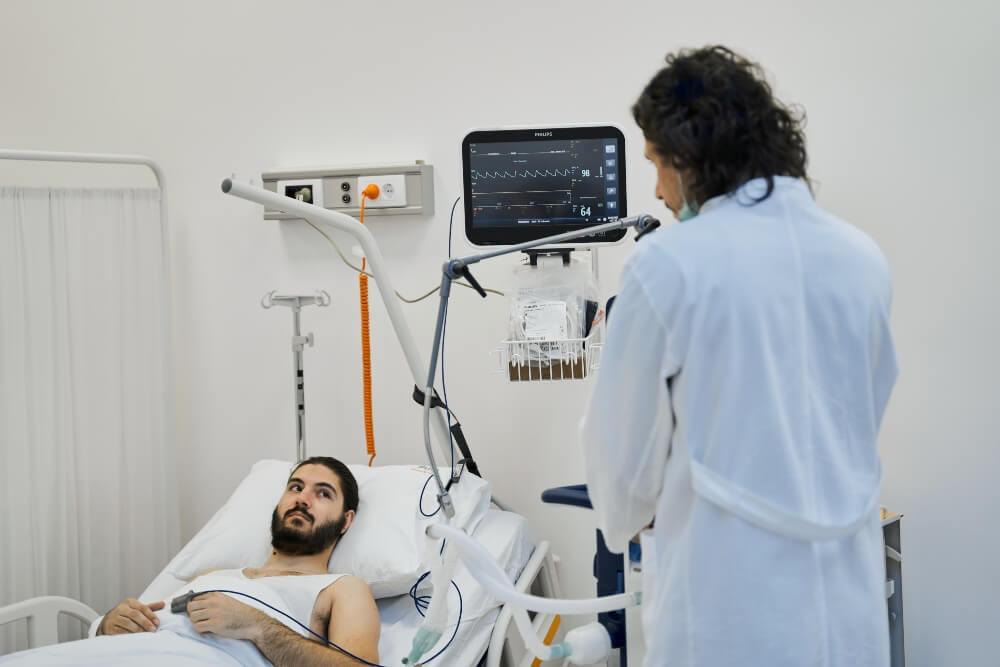No heart condition should be taken lightly, and every treatment should be approached responsibly and consistently. Taking medication in a timely manner and undergoing regular check-ups are essential for a good quality of life despite any illness. Heart diseases, including pericarditis, can occur at any stage of life. For anyone experiencing such a condition, swift diagnosis and well-planned, implemented treatment provide a chance to overcome the illness.
If you need a pediatric cardiologist in Belgrade or a specialist in adult cardiology, our clinic is the place where you will find the best and most experienced doctors who will be your true allies in the fight for health.
What is pericarditis and how does it occur?
Pericarditis is the term used for inflammation of the pericardium, the protective membrane around the heart. The pericardium is also known as the pericardial sac, hence the name of this condition.
The pericardium has two layers, and under normal circumstances, there is a small amount of fluid between them, which allows the heart to function properly. In cases of inflammation, the amount of fluid increases, resulting in increased pressure on the heart muscle. Inflammation of the pericardium is dangerous as it negatively affects the heart’s functioning and must be treated to avoid fatal consequences.
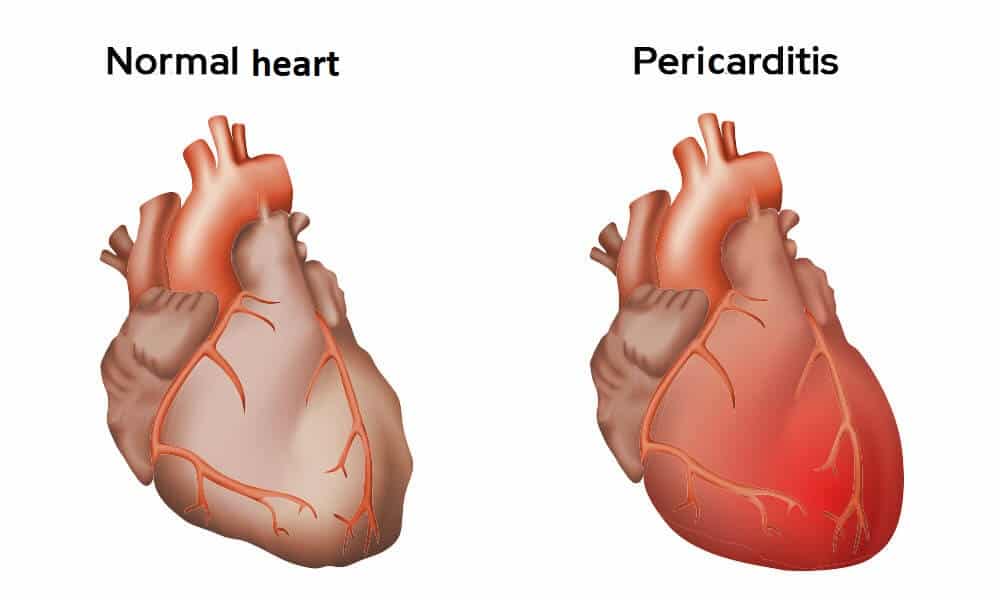
This problem can occur as a result of certain diseases or conditions, including:
Viral or bacterial respiratory infections (commonly associated with adenovirus, HIV, Coxackie, Parvo B19, cytomegalovirus, Epstein-Barr, Covid-19, while bacteria such as Staphylococcus, Streptococcus, Pneumococcus can also be causative agents)
- Fungal infections
- Parasitic infections
- Complications following a heart attack or surgical intervention
- Autoimmune diseases
- Liver, thyroid, or kidney diseases
- Tumors
- Chest trauma
- Use of certain medications (this is one of the rarest causes of pericarditis)
Types of pericarditis
There are several types of this disease, each with its own specific characteristics, including the duration of the condition.
Acute pericarditis
This type can be caused by various factors mentioned in the previous section. It usually lasts for two to three weeks, and with proper treatment and rest, it does not leave any lasting effects.
The subtypes of acute pericarditis include:
- Dry pericarditis (pericarditis sicca): Typically occurs as a result of a viral infection. The initial symptoms may include fever, general fatigue, muscle aches, sweating, followed by chest pain that worsens when lying on the back, coughing, inhaling, and may also radiate to the neck and left shoulder. This pain is often alleviated when the person sits or leans forward.
- Pericardial effusion (pericarditis exudativa): This type can be caused by any of the aforementioned factors. It can be asymptomatic when the effusion is small, but in larger effusions, patients may experience constant chest pain or pressure, difficulty breathing and swallowing, sweating, and may appear pale.
Recurrent pericarditis
This type refers to inflammation that returns after a certain period, typically after a year or more.
Chronic pericarditis
Chronic pericarditis refers to recurrent inflammation that occurs as soon as the treatment is stopped, often associated with an autoimmune disease.
- Constrictive pericarditis – In this condition, the pericardium becomes thickened, rigid, or calcified, thereby hindering the normal filling of the heart. Patients complain of fatigue, cough, breathing difficulties, swollen neck veins, often enlarged liver, and as the disease progresses, fluid retention in the abdomen and swelling of the legs may occur.
- Partial pericarditis and partial cardiac calcification – This type is characterized by adhesions between the layers of the pericardium or between the pericardium and the heart or other parts of the chest wall.Patients in this situation experience difficulty breathing during exertion, skipped heartbeats, and chest pain.
- Chronic pericardial effusion – Refers to an effusion that lasts for more than 6 months. The symptoms are similar to those of other chronic types: breathing problems, chest heaviness, and cough.
Cardiac tamponade
Cardiac tamponade is a condition that can be a severe consequence of inflammation of the pericardium. The accumulation of a larger amount of fluid between the layers of the pericardium leads to an increase in intrapericardial pressure, which in turn causes serious problems with heart filling. Patients may appear pale, have altered mental status, experience difficulty breathing, have low arterial blood pressure, elevated venous pressure, and decreased cardiac contractions.
Cardiac tamponade requires immediate medical attention.

How to recognize the symptoms of pericarditis?
There are several symptoms that can indicate inflammation of the pericardium:
- Chest pain is one of the most common symptoms, which can be described as sharp, stabbing pain or constant pressure. It may also radiate to the shoulders and neck.
- Breathing difficulties and pain during inhalation or exhalation.
- Fatigue and weakness.
- Heart palpitations or irregular heartbeat.
- Mild fever (often not higher than 37.5 degrees Celsius, but this can vary depending on the underlying cause of pericarditis).
- Swelling in the legs.
- Worsening of pain and discomfort while lying down, with relief when sitting up.
How long does pericarditis last?
The duration of pericarditis depends on several factors, especially the underlying cause of the problem and the effectiveness of the treatment. Typically, acute pericarditis lasts around three weeks.
How is pericarditis diagnosed?
Diagnosis is relatively simple as there are tests that can provide answers to the specialist doctor quickly.
The patient is first examined by a cardiologist and then may be referred for some of the following tests:
- ECG (electrocardiogram) – measures the electrical activity of the heart.
- Chest X-ray – can show the appearance and size of the heart, as well as any changes that may be caused by an increased amount of fluid.
- Echocardiogram – can clearly confirm the increased amount of fluid between the layers of the pericardium.
- Finding the cause is crucial, and in most cases, viral infections are the cause. Therefore, these tests are performed, and if necessary, further investigations into other potential causes are conducted.
Treatment of pericarditis and recovery
The treatment depends on the underlying cause of the inflammation. When it is caused by a viral infection, the patient is usually prescribed anti-inflammatory medications, possibly vitamins, and rest is mandatory! In some cases, additional medications may be included if the initial therapy is not effective.
When it comes to other causes, the treatment is even more individualized, and it truly depends on each patient. Regarding the duration of pericarditis, it is more challenging to provide an answer because it can last for more than a month. Successful treatment requires regular medication intake, rest, and strict adherence to all medical advice.
Inconsistency can lead to complications, such as the formation of adhesions on the heart. In patients with an increased amount of fluid, a pericardial puncture or surgical drainage will be performed.
Untreated inflammation severely weakens the heart muscle, which can ultimately result in a fatal outcome – death. For individuals with cardiac issues, fast and high-quality care is a priority, and all of that can be obtained at the Cardiology Center Pulse. We take pride in our team of cardiologists and interventional cardiologists who are trained to perform the most advanced diagnostic and interventional procedures.
If you care about your heart, schedule an appointment with us, as you will always be in safe hands.

